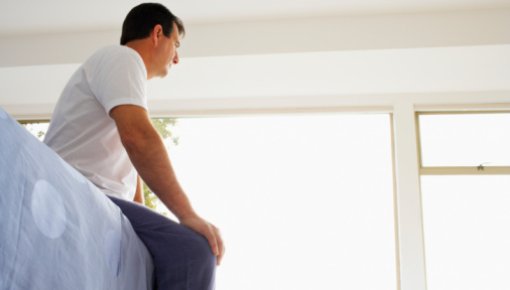I was constantly at the doctor’s
Two years later I got really sick. That year I was constantly at the doctor’s. I just felt miserable. I didn’t know why. All the symptoms were so vague, and I couldn’t really describe them.
I'm self-employed, and my worries about my company started getting to me more and more. But that was already due to my depression – looking back, I can now see that I took the problems too seriously. I felt incapacitated and down, and developed all kinds of problems like back ache, sleeplessness, loss of appetite, and strange sensations in my body.
I described all of this to my doctor, but he didn't really know what to make of it so he advised me to relax and take things a little easier. But it got worse and worse, and at one point I started to believe I was seriously ill, like that I had leukemia or another kind of cancer. My doctor then put me down as a hypochondriac. He played it all down a bit, and took me less and less seriously. I still think he’s a really good doctor who has always taken good care of my family. He just didn't quite understand what was going on in my particular case.

